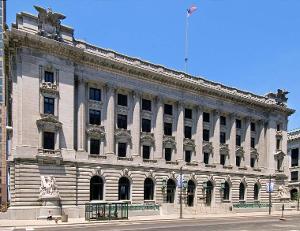ROGER STEARNS
BANKRUPTCY ATTORNEY TEL: 216.521.0200 CH 7 / CH 13
CHAPTER 7 BANKRUPTCY: After the Meeting of Creditors
The Meeting of Creditors will generally last no longer than 20-30 minutes. The Chapter 7 Trustee is assigned to interview each Debtor under oath, and to investigate whether there are any assets, money or other property available to pay creditors. Your creditors are permitted to appear at the Meeting of Creditors either personally or as represented by an attorney. Creditors may also ask questions about their claim, assets securing the claim, about the location of collateral securing a claim, about allegations of fraud or fraudulent transfers, etc. It is important to disclose as much about your financial situation at the first consultation with your attorney so that answers to these questions can be prepared and answered truthfully, In some cases, you can work with your attorney to rearrange your financial affairs to legally obtain the best position for your Chapter 7 bankruptcy case filing. With more than 40 years of experience, Attorney Roger Stearns is highly qualified to counsel you with respect to these issues.
The Chapter 7 Trustee can request that a Debtor return to provide answers to additional questions at what is called a Bankruptcy Rule 2004 Examination. The Chapter 7 Trustee has all of the tools provided by the Federal Rules of Civil Procedure ( Subpoena, Requests for Production of Documents, Written Interrogatories, Depositions, Court Ordered physical investigation of property or location of property, Appointment of Receiver or Attorney for the Bankruptcy Estate, etc) to discover and recover assets. The Chapter 7 Trustee is a party in your bankruptcy case who needs to be accounted for from day one.
In addition to the Chapter 7 Trustee, the Federal Rules of Bankruptcy Procedure and Title 11 of the United States Code provide additional levels of case audits for any filed bankruptcy case. The Office of the United States Trustee is permitted to appear and participate at the Meting of Creditors. Usually, the Office of the United States Trustee is involved in cases where the Debtors report a high amount of income on the Means Test, and certain line-item deductions require further examination. Since the Chapter 7 Panel Trustee is required to focus primarily on asset investigation and recovery, the Office of the United States Trustee carries the duty to investigate Debtor eligibility issues. There are some instances where the case is randomly selected for a full audit. This does not happen frequently, but when it does occur, a Certified Public Accounting Firm is assigned to verify all of the information disclosed in the case, with focus being particularly on the Means Test.
Once the Meeting of Creditors is concluded, the Chapter 7 Panel Trustee will file Minutes of the Meeting of Creditors with the United States Bankruptcy Court. In our district, this is filed in the United States Bankruptcy Court for the Northern District of Ohio. The Minutes of the Meeting of Creditors disclose whether the case is determined to be an "Asset," "No Asset," or "Undetermined as to Assets" case. In an Asset case, the Chapter 7 Panel Trustee has a legal duty to recover assets of the Debtor which do not fall under a legal exemption. It is important that you consult with an Attorney who understands all of the available bankruptcy exemptions to fully protect your property.
The Debtor(s) has/have 45 days after the Meeting of Creditors to decide whether or not to enter into a Reaffirmation Agreement as to any of the debts. In most cases, reaffirmation is not considered for any of the general unsecured debts, outside of some compelling reason ( there usually are none). The Debtor may decide to reaffirm a first mortgage, or possibly an auto loan so that the debt continues to be reported to the major credit reporting agencies ( Trans Union, Equifax and Experian) after the bankruptcy case is discharged and closed. A Reaffirmation Agreement approved by the United States Bankruptcy Court in a Chapter 7 case basically re-establishes the Debtor(s)' personal legal liability to pay the Debt. In most cases the reaffirmation agreement is under the same terms that existed when the case was filed, with the same principal balance, loan duration, and interest rate.
